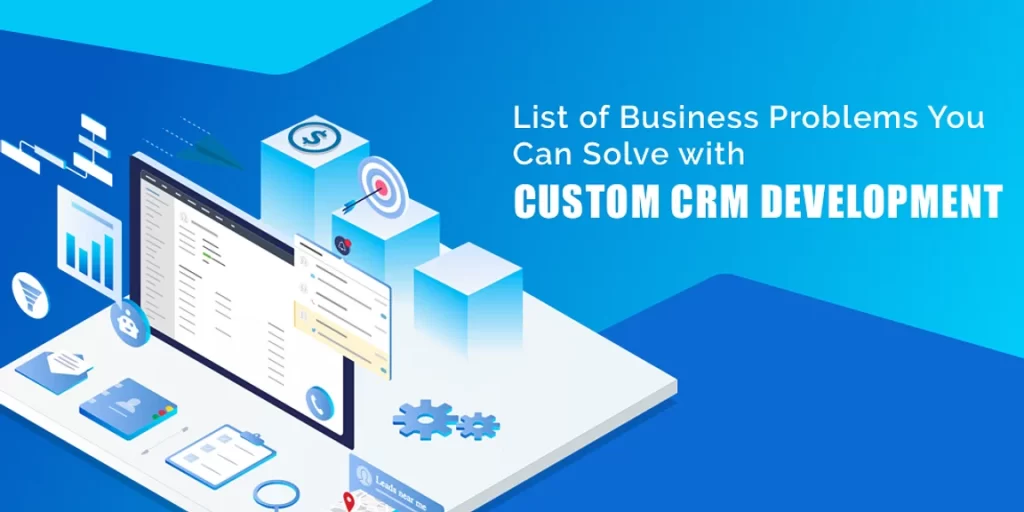Choosing a CRM (Customer Relationship Management) system for your business can be a daunting task, but it is essential to ensure that you are managing your customer interactions effectively. Here are some tips to help you choose the right CRM for your business:
- Define your requirements : Identify your business needs and processes. Look for a CRM that can address those specific needs.
- Determine your budget : Set a budget for your CRM investment. You may find free or low-cost options that can meet your requirements, or you may need to invest in a more expensive solution.
- Research : Look for CRMs that have been specifically designed for your industry or business type. Compare features, functionality, and prices of different CRMs.
- Consider user-friendliness : Choose a CRM that is easy to use and requires minimal training for your staff.
- Integration : Look for a CRM that can integrate with your existing systems, such as your website, email, or social media platforms.
- Mobile accessibility : Choose a CRM that has mobile accessibility, so your staff can access customer data on-the-go.
- Security : Ensure that the CRM you choose has robust security features to protect your customer data.
- Trial period : Take advantage of free trial periods offered by CRM providers to test their system and evaluate if it meets your business needs.
Overall, selecting a CRM requires careful consideration of your business needs, budget, and the features offered by different providers. By doing your research and evaluating various options, you can find the right CRM for your business that helps you manage your customer relationships effectively.

What does CRM do ?
CRM (Customer Relationship Management) is a technology-driven approach that helps businesses manage and improve their interactions with customers. CRM software enables businesses to store customer information, track customer interactions, and analyze customer behavior, all in one place.
CRM provides a 360-degree view of a customer’s journey with a business, from the initial contact to the final purchase and beyond. This helps businesses understand customer needs, preferences, and behavior and provide better customer service, personalized marketing, and improved sales strategies.
With CRM, businesses can track customer interactions across various channels, including email, phone, social media, and chatbots. This data can be used to segment customers based on their interests, buying behavior, and demographics, and targeted marketing campaigns can be designed to provide them with personalized experiences.
CRM can also automate routine tasks such as data entry, lead nurturing, and follow-up reminders, which saves time and resources for businesses. Furthermore, it helps businesses make data-driven decisions by providing real-time analytics and reports that show customer trends and behavior.
Overall, CRM is an essential tool for businesses that want to improve their customer engagement and experience. It streamlines processes, provides insights, and helps businesses deliver better service to their customers.

Why CRM Matters ?
CRM (Customer Relationship Management) is critical for businesses of all sizes and industries because it helps build and maintain strong relationships with customers. Here are some key reasons why CRM matters:
- Improved customer engagement : CRM allows businesses to understand their customers’ needs, preferences, and behavior, enabling them to provide personalized and targeted marketing campaigns that result in better customer engagement.
- Increased customer satisfaction : By tracking customer interactions and addressing their concerns in a timely and effective manner, businesses can increase customer satisfaction and loyalty.
- Better sales management : CRM software enables businesses to track leads and sales opportunities, providing insights into the sales pipeline and enabling businesses to close more deals.
- Enhanced productivity : By automating routine tasks such as data entry, follow-ups, and lead nurturing, businesses can free up valuable time and resources that can be used to focus on core business activities.
- Improved collaboration : CRM systems allow multiple departments within a business, such as sales, marketing, and customer service, to access and share customer data, facilitating collaboration and better communication across the organization.
- Real-time insights : CRM systems provide real-time analytics and reports, enabling businesses to make data-driven decisions and improve their overall performance.
Overall, CRM matters because it helps businesses build better customer relationships, increase customer satisfaction, and improve their overall productivity and performance. It is a critical tool for businesses that want to remain competitive in today’s market.

Where Can I Choose A CRM For My Business ?
There are several ways to choose a CRM for your business. Here are some options:
- Online research : You can use search engines like Google to find CRM options that match your business needs. Check out their features, pricing, and user reviews to determine if they are a good fit.
- Referrals : Ask other businesses or colleagues in your industry which CRM systems they use and recommend. Word-of-mouth recommendations can be a valuable resource in finding the right CRM for your business.
- Consultation : Consider hiring a consultant who specializes in CRM selection to help you evaluate different options and make an informed decision.
- Vendor demos : Schedule a demo with CRM vendors to see how their software works and whether it meets your business requirements.
- CRM comparison websites : There are several websites that allow you to compare different CRM options side by side, making it easier to find the right fit for your business.
Once you have identified a few potential CRM options, take the time to test them out before making a final decision. Most vendors offer free trials or demos, allowing you to evaluate the software’s features and user-friendliness. By taking a methodical approach and considering all the factors involved, you can choose a CRM that will help you manage customer relationships effectively and grow your business.

Conclusion :
Choosing the right CRM for your business can be a daunting task. However, by carefully considering your business needs, scalability, user-friendliness, integration capabilities, data security, customer support, and budget, you can make an informed decision. A CRM system can help you manage customer relationships effectively, increase sales and revenue, and streamline your business processes. Therefore, it is essential to invest time and effort in selecting the right CRM that aligns with your business goals and requirements. With the right CRM in place, you can take your business to the next level and achieve long-term success.

